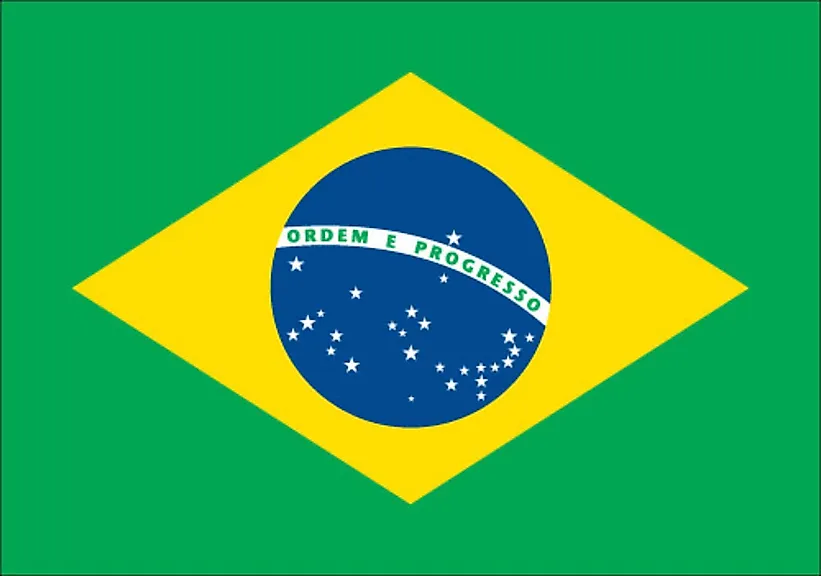
Brazil
| Continent | Americas |
| Capital | Brasilia |
| Population | 205,823,665 |
| GDP | $3.08 Trillion |
| GDP per Capita | $14,800 |
| Dialing Code | +55 |
| ISO Code (2-letter) | BR |
| ISO Code (3-letter) | BRA |
Brazil Landscapes






About Brazil
Welcome to Brazil, the largest country in South America and a land of superlatives. With approximately 214 million people spread across 8.5 million square kilometers, Brazil is the world’s fifth-largest country by both area and population. From the Amazon rainforest to the beaches of Rio de Janeiro, from the vibrant culture of Salvador to the modern architecture of Brasília, Brazil offers an extraordinary diversity of experiences and landscapes.
Geographic Features and Natural Beauty
Brazil’s geography encompasses an incredible range of ecosystems and landscapes. The Amazon rainforest, covering about 60% of the country, is the world’s largest tropical rainforest and home to unparalleled biodiversity. The Amazon River system, the world’s largest by water volume, creates a vast network of waterways and wetlands.
The country’s coastline stretches for over 7,400 kilometers along the Atlantic Ocean, featuring countless beautiful beaches, including the famous Copacabana and Ipanema in Rio de Janeiro. The Iguazu Falls, shared with Argentina, comprises 275 individual waterfalls and is one of the world’s most spectacular natural wonders.
The Pantanal, the world’s largest tropical wetland, provides habitat for countless species of birds, mammals, and reptiles. The Brazilian Highlands, including the Serra do Mar and Serra da Mantiqueira mountain ranges, create dramatic landscapes along the country’s eastern coast.
Cultural Heritage and Traditions
Brazilian culture is a vibrant fusion of Portuguese, African, indigenous, and various immigrant influences. This cultural diversity is expressed through music (samba, bossa nova, forró), dance, cuisine, and festivals. The Rio Carnival, the world’s largest carnival celebration, exemplifies Brazil’s festive spirit and cultural richness.
Brazilian cuisine varies by region but includes nationally beloved dishes like feijoada (black bean stew), moqueca (seafood stew), and churrasco (barbecue). The country’s coffee culture, developed over centuries, has made Brazil the world’s largest coffee producer.
Football (soccer) is more than just a sport in Brazil; it’s a national passion that has helped shape the country’s identity, with five FIFA World Cup victories making Brazil the most successful national team in history.
Historical Journey
Brazil’s history spans from indigenous civilizations through Portuguese colonization beginning in 1500. The country became the center of the Portuguese Empire when the royal family fled to Rio de Janeiro during the Napoleonic Wars. Brazil gained independence in 1822 and became a republic in 1889.
The 20th century saw rapid industrialization and urbanization, including the construction of the modernist capital city Brasília in the 1960s. The country returned to democracy in 1985 after two decades of military rule and has since emerged as a major global economic power.
Modern Economic Landscape
Today’s Brazil is one of the world’s largest economies, with strengths in agriculture, manufacturing, services, and technology. The country is a major exporter of agricultural products, including soybeans, coffee, and beef, and has significant industrial capacity in sectors ranging from aircraft manufacturing to automobile production.
The discovery of massive offshore oil reserves has boosted Brazil’s energy sector, while the country’s commitment to renewable energy, particularly hydroelectric power and biofuels, positions it as a leader in sustainable development.
International Relations and Global Position
Brazil plays a significant role in international affairs as a member of BRICS, MERCOSUR, and various international organizations. The country is known for its diplomatic approach to international relations and its advocacy for developing nations in global forums.
Did You Know?
• Brazil is home to the largest Japanese population outside Japan?
• The country has won the FIFA World Cup five times, more than any other nation?
• Brazil’s biodiversity includes more than 40,000 plant species and 1,800 bird species?
• The Christ the Redeemer statue in Rio de Janeiro is one of the New Seven Wonders of the World?
Conclusion
Brazil stands as a unique blend of natural wonders, cultural diversity, and economic potential. From its megacities to its remote wilderness, from its traditional festivals to its modern industries, Brazil continues to captivate the world with its energy and creativity. As it addresses challenges including environmental protection and social inequality, Brazil remains committed to sustainable development and maintaining its position as a global leader in biodiversity conservation and cultural innovation.